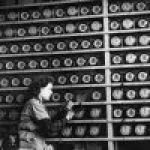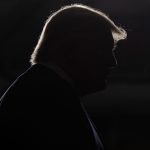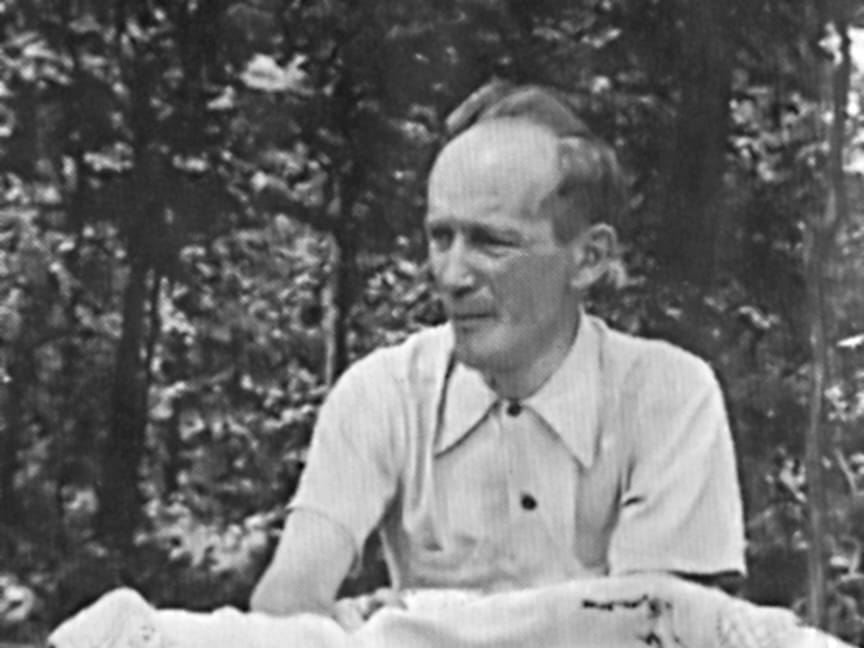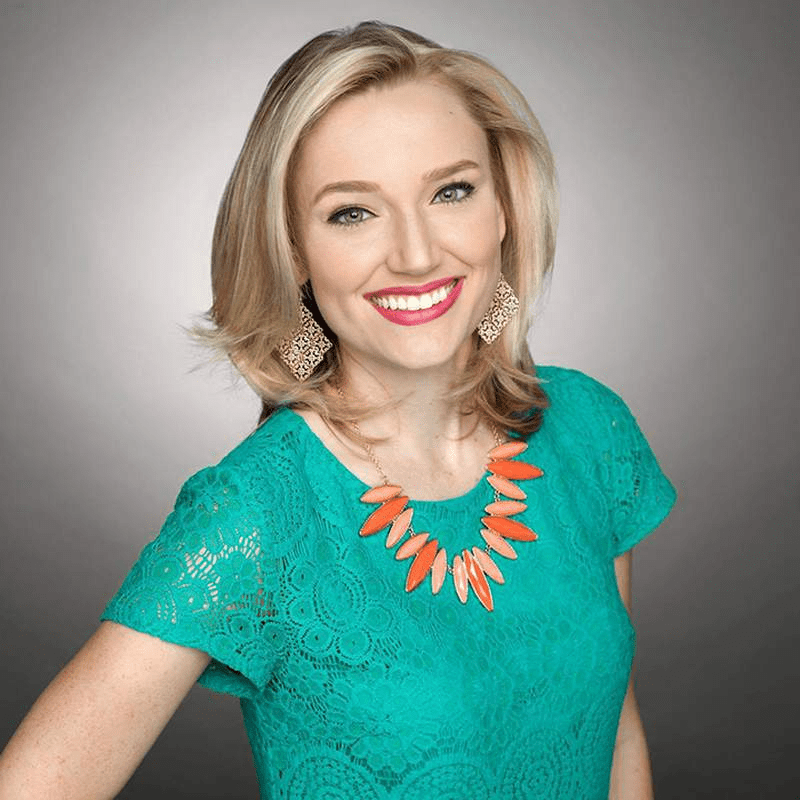
Older viewers are turning to YouTube. It’s recently led me back to some favorite shows
March 31, 2025
The End of DEI: What Trump’s Executive Orders Mean for Black Americans
March 31, 2025
The Ukrainian Marxist Roman Rosdolsky was one of the pioneering scholars of Marxology. He was engaged as a Marxist activist and social scientist in spaces ranging from European cities like Lviv, Krakow, Prague, and Vienna during the interwar period all the way to New York and Detroit after the war.
Rosdolsky’s life is intricately interconnected with his scholarly work. Born in 1898, he became an active socialist before World War I. During the October Revolution, he supported the Bolsheviks and became a leading figure of the newly established Communist Party of Western Ukraine.
With his lifelong partner and comrade, Emily, he shared the experience of exile and political isolation while retaining a firm belief in the possibility of a better world. Rosdolsky narrowly escaped the attention of the Soviet secret police and survived imprisonment in three Nazi concentration camps.
After moving to the US, he remained a committed Marxist in a bitterly hostile environment and produced important studies that helped transform our understanding of Karl Marx’s theory. Rosdolsky left behind a remarkable body of work, much of which has yet to appear in English translation more than half a century after his death in 1967.
Rosdolsky’s interest in Ukrainian history and sociology dated back to a time when Ukraine lacked statehood and an official language. Hailing from a liberal bourgeois background deeply connected to the Ukrainian independence movement, the Rosdolsky family had close associations with figures like Ivan Franko, a prominent poet in the pre-Marxian socialist movement.
The Ukrainian bourgeoisie in Lviv consisted merely of a small community of intellectuals, as Rosdolsky tells us in his writings. Franko, renowned as a poet and translator of world literature into Ukrainian, commenced his studies in philosophy, the Ukrainian language, and literature at the University of Lviv in 1875. During his time there, he became acquainted with the famous Ukrainian anarchist Mykhailo Drahomanov and embraced his socialist ideas.
Rosdolsky’s passion for teaching and research was instilled by his father, Ossyp, a distinguished linguist and ethnologist in Lviv, the capital of Eastern Galicia under the Austrian Habsburg Empire. His first exposure to social history and sociology came during his childhood when he accompanied his father to Galician villages. They recorded Ukrainian folk songs on wax discs in pubs and other public places using a primitive Edison phonograph — records that were later donated to Ukraine’s National Academy of Sciences in Kyiv.
Among historians, Rosdolsky was highly esteemed for his research on taxation and agrarian reforms under Joseph II during the Enlightenment era. As a critical scholar, Rosdolsky not only confronted Russian chauvinism — both before and after the October Revolution — but also dispelled prominent myths propagated by Ukrainian nationalists.
One such myth pertained to communal practices in Galicia. It was widely believed that Russians inherently embraced collectivism through forms of communal land redistribution, known as Mir or Obshchina. In contrast, Ukrainians were stereotyped as individualistic, avoiding communal farmland sharing.
Rosdolsky debunked this misconception by meticulously examining land registers. His findings established that southern Galician Ukrainians upheld communal traditions in village communities well into the late eighteenth century.
These experiences — especially the interactions with the impoverished peasantry in Galician villages — had a significant impact on Rosdolsky’s thinking, influencing many of his later works as well as his political outlook. His profound sympathy for the downtrodden, particularly the poor peasants in Western Ukraine, stemmed from these early encounters.
For Rosdolsky, the agrarian question was not just connected to his own history but to the so-called national question as such. He believed that many misconceptions concerning the “nationality problem” among renowned Marxists of his time arose from the neglect of the peasantry in their thinking.
Rosdolsky experienced a turbulent life shaped by war, revolution, and counterrevolution. He embraced socialist ideals at the age of fourteen, joining the clandestine Ukrainian socialist movement in 1912 and entering the cadre of the Drahomanov Organization, which took its name from the figure who had inspired Ivan Franko. Serving in the Austrian army from 1915, he led an illegal Marxist cadre group opposing the imperialist war as well as the liberal-nationalist parties in Ukraine.
The Russian revolution of 1917 profoundly sharpened Rosdolsky’s political thinking, leaving a lasting impact on his personal, political, and scholarly endeavors until his death. As a historian, he participated in several debates concerning the analysis of the October Revolution and Bolshevik politics of the time. His final, unfinished book project, focusing on the Brest-Litovsk peace negotiations of 1918, aimed to challenge the Soviet Union’s policy of “peaceful coexistence” under Nikita Khrushchev.
Looking back on this period from the vantage point of the 1960s in correspondence with the Austrian social democrat Julius Braunthal, Rosdolsky reflected on the inevitability of the collapse of the Habsburg Empire. The illegal organization that he led during the war in Galicia, the International Revolutionary Social Democratic Youth, stressed this point in its clandestine newspaper, talking about the need to prepare for the socialist revolution in Europe.
Rosdolsky and his comrades translated and printed Otto Bauer’s essay about the Russian Revolution into Ukrainian, publishing it as a brochure for distribution among soldiers of the Austrian and Russian armies. At this point, Rosdolsky still had sympathies, on the one hand, for the left wing of Austrian Social Democracy as represented by Bauer and, on the other, for the left wing of the Bolsheviks, known as Left Communists and associated with figures such as Nikolai Bukharin. He later distanced himself from positions inspired by Austro-Marxism.
In early 1918, Rosdolsky risked his life by crossing the Austrian-Russian border with forged military papers to deliver two hundred copies of Bauer’s pamphlet opposing the war and welcoming the revolution in eastern Ukraine. In the same year, disagreements arose within his young organization because of the Red Army’s march toward Kyiv. Rosdolsky and the newspaper of his group sided with Ukraine’s Central Rada, viewing the Red Army as an occupying force, not a liberating one.
Rosdolsky appears to have played a crucial role in establishing the International Revolutionary Social Democratic Youth, a precursor to the Communist Party of Western Ukraine. The organization promoted antiwar ideas and aligned itself with the left wing of German and Austrian Social Democracy.
After the war ended, Rosdolsky and his associates engaged in guerrilla warfare against the newly formed Polish state, defending the short-lived People’s Republic of Western Ukraine. Subsequently, his group relocated to Prague, where he began his studies in law and political sciences, before moving to Vienna and ultimately earning his PhD with a dissertation on Marxism and the national question in 1929.
It was in Prague and Vienna that Rosdolsky began his studies of the national question. He critically examined the prevailing ideology that spoke of a clash between culturally progressive nations and supposedly less civilized ones. In the Habsburg Empire, it was customary to label Ukraine and other peasant nations suppressed by the Austrian crown as nations without history.
It might seem perplexing that Karl Marx and Friedrich Engels uncritically reproduced this expression during and after the European revolutions of 1848–49, with all its pejorative and insulting connotations. Rosdolsky’s friend Ernest Mandel dedicated his work Late Capitalism to him and praised his 1929 doctoral thesis, “Friedrich Engels and the Problem of the ‘Peoples without History,’” as a groundbreaking Marxist critique of Marx and Engels themselves and the first successful application of the method of historical materialism to its own foundations.
While most Marxists today tend to focus on the process of nation-building and developments in the cultural superstructure, following the tradition of Karl Kautsky and Otto Bauer, Rosdolsky delved deeply into the question of state-building — the development of independent state institutions based on the emerging national economy. There was a clear connection between his writings on the history of Ukraine and the national question on the one hand and his economic works on the other.
In his work The Making of Marx’s Capital, Rosdolsky addressed the social differences between the working class in so-called developed nations with a relatively high standard of living and those in underdeveloped nations with often “inhumanly low wages”: “How is it that a North American worker often earns ten times as much as, for example, someone of the same class in Guatemala?”
Rosdolsky explained why he wanted to subject the theory of “non-historic” nations that Engels and Marx both relied upon to critical scrutiny:
The theory of “historical” and “historyless” peoples has long been dead, and no one (especially no Marxist) would think of reviving it. What matters today is solely to explain how a materialist thinker of Engels’ stature could advocate for this theory. Here, we must first point out the striking similarity with Hegel’s theory of history.
He went on to explain how the stance of Marx and Engels on the national question was related to their economic and state theory. According to Rosdolsky, Marx and Engels primarily favored a unified, centralized state because they believed that economic development inevitably leads in that direction.
In addition, they argued that such a nation-state would foster the unity of the working class, thus creating conditions for a socialist revolution. While Marx and Engels later developed anti-colonial positions in relation to India, Ireland, and other national liberation movements, they never reassessed their previous positions concerning supposedly non-historic nations like Ukraine.
Rosdolsky’s engagement with Ukrainian history and his early exposure to the evolving identity of Ukraine is notable. The concept of Ukraine as a nation without a state was initially held by a few intellectuals, mainly anarchist or socialist. However, during Rosdolsky’s youth, the People’s Republic of Western Ukraine transformed this idea into tangible reality. Throughout his life, Rosdolsky sought to understand the history of Ukraine, delving into the shadows of forgotten ancestors.
While studying in Austria for his doctorate, he also served as the Vienna correspondent for the ongoing Marx-Engels Complete Works (MEGA) project led by David Riazanov from the Marx-Engels Institute in the USSR. In the course of his research, Rosdolsky encountered derogatory passages about Ukrainians and other Slavic ethnicities in articles by Marx and Engels during the 1848–49 revolutions.
In 1934, the Austrian fascist regime expelled Rosdolsky, and he had to move to Lviv, now part of the Polish Republic, where he led a group of anti-Stalinist Marxists. Until 1939, he worked at the Institute of Economic History at the University of Lviv, continuing the research on serfdom in the Habsburg Monarchy that he had started in Vienna. With the support of Professor Franciszek Bujak, Rosdolsky also carried on with his studies on the national question in Austria-Hungary.
But Rosdolsky and his wife had to move once again, in September 1939, after the Adolf Hitler–Joseph Stalin pact and the invasion of Poland. They left Lviv the day before it was occupied by Soviet troops, moving to Krakow. Rosdolsky was considered a Trotskyist by the Soviet authorities, although he had not joined the Fourth International when Leon Trotsky launched it on the eve of the war. His old friend and comrade Stepan Rudyk, a cofounder of the Communist Party of Western Ukraine, did not make it out of the city in time and became a victim of the NKVD, Stalin’s secret police.
Actively engaged in resisting Nazism and antisemitism, Rosdolsky was arrested by the Gestapo in September 1942 for assisting Jews and deported from Krakow to Auschwitz-Birkenau in April 1943. During the course of three years in the Auschwitz, Ravensbrück, and Sachsenhausen concentration camps, Rosdolsky engaged in political discussions with fellow inmates about the national question and other controversial aspects in Marxist theory. He remained in captivity until the fall of the Nazi regime.
His interlocutors during this period included Alfred Klahr, a political scientist who had been active in the Communist Party of Austria and developed a theoretical argument that there was a distinct Austrian nation, separate from the German nation. Klahr escaped from Auschwitz but was later shot by the Nazis in occupied Poland.
After the war, Rosdolsky emigrated to the United States, where he worked as a private scholar until his death. He was isolated from the academic environment there during the era of McCarthyism. Lacking a university position, he dedicated himself to various studies and maintained a lively correspondence with intellectuals and politicians worldwide.
He began to delve more deeply into Marx’s critique of political economy and the method of Capital, drawing upon one of the few copies of Marx’s Grundrisse available in the US at the time, which he found in a library set up in New York by his friends Joseph Buttinger and Muriel Gardiner. The Grundrisse was an unpublished manuscript from the period when Marx was preparing to write Capital. The first German-language edition of the text was produced in Moscow under the auspices of the Marx-Engels Institute during the war, and a full English translation did not appear until the 1970s.
Upon reading this hitherto unknown work, Rosdolsky realized the need to counter the ignorance and vulgarity of the version of Marxism peddled by Stalin and his supporters. He aimed to rescue Marxism as a social and political science. This prompted him to begin writing The Making of Marx’s Capital, which was to become his most celebrated work.
Unfortunately, Rosdolsky did not have the opportunity to witness the broad reception of his study. It was published posthumously in 1968, one year after his death. While some of his insights may be in need of revision with the emergence of additional Marx manuscripts and other research, it remains Rosdolsky’s merit to have redirected the focus of the debate in a new direction.
His letters and writings serve as instructive testimonies to the shift in discourse toward neo-Marxist and post-Marxist thinking. Despite experiencing the Holocaust and the Stalinist terror, Rosdolsky retained a strong emotional affinity and political connection to the labor movement and its rich traditions.
He could engage in rigorous debates, and political differences put a strain on some of his friendships. Yet the openness and elegance of his discussions with a range of prominent Marxists, from Julius Braunthal and Natalie Moszkowska to Paul Mattick and Isaac Deutscher, is inspiring and impressive.
Rosdolsky’s seminal work on Marx’s Grundrisse and Capital, having been conceived in the 1950s, significantly influenced the neo-Marxist discourse of the 1970s. His critique of the Marxist classics in his book On the National Question also garnered worldwide recognition after Rosdolsky’s death, and it remains a key reference point for discussion of Marxist theories of nationalism.
Great Job Pablo Hörtner & the Team @ Jacobin Source link for sharing this story.








